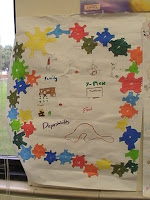I miss the purple lilacs in the front yard,
The scent’s strength permeating the house on a May afternoon,
Adorning the table at eleven high school graduations.
I miss the wood floors in the dining and living room,
The polkas and waltzes, standing on Daddy’s shoes,
The Big Joe Polka show playing on the scratchy stereo.
I miss Dad’s breathy laugh and how he laughed at his own jokes, and the
stories he told of fishing on the Loup Canal and dunk hunting on the Platte,
the town whistle blowing because his parents thought he’d drowned in the canal.
I miss working side by side with Mom in the kitchen,
peeling potatoes, snapping beans, frying chicken, adding cornstarch
to make gravy, washing dishes, and having a cool one after a hot
day of cooking.
I miss racing across road and down the alley to Babka’s house,
Her front porch, sun drenched, on winter days, reading magazines,
Pulling weeds and picking strawberries in the summer, paring apples in the fall,
Staying overnight and having bacon and eggs and coffee boiled with egg shells
On the white wood burning stove.
I miss climbing out onto the roof from our bedroom with my sister Chris,
Talking the night away about our future plans, boyfriends, girl friends, and people
We couldn’t stand.
I miss watching the basketball games and screaming at the top of my lungs when
My older brothers played a good game, screaming for three, Mike, Kava and Scott, proud
Of their three point shooting ability long before the three pointers counted.
I miss our family trips to Beatrice to see our brother Mark—the laughter he created with his funny ways—his love of grapes and magazines and chocolate—and the sadness of leaving him behind.
I miss making breakfast for the little ones before school—Cocoa Wheats, pancakes, and fried eggs or lunches during the summer of fried baloney sandwiches, grilled cheese and macaroni and cheese or hot dog gravy.
I miss watching my younger siblings grow up—Paco, Lisa, Julie, Denise, Charlie and Vicki—the other half of the family growing up while I was married.
I miss all the days of constant commotion, daily strife, tears, laughter, good times, and love, a communion like no other I’ve ever experienced before or ever will again, the tight-knit, stick together family we were and still are.
* * *
I wrote the poem above in 2005, or six years ago. It was the second version of the "Where I'm From" parodied after George Ella Lyon's poem. I have always loved Ms. Lyon’s poem because it is a poetry form that many of us can use well. It isn’t always easy to copy her form. She says so much in a few lines! It takes me forever to say what I want to say but that is because I have so memories. A person has a lot of memories when they have a large family. It would take me a life time to write everything about my family. The sense of place I had was very strong because we rarely went beyond a 50-mile radius of my hometown, Silver Creek. Large families simply don’t have the income to accommodate much travel. It was a highlight for us to travel the 100 miles to Beatrice to visit our brother. It was also necessary to recruit a family friend to help transport our entire family.So, because we never traveled far, I became intimately acquainted with every gravel street, every flower on my two-block walk to school. I could walk to Kula’s store “downtown” with my eyes closed. I knew not to go barefoot across the Union Pacific railroad during the summer because there were too many stickers protruding from the sidewalk on the approach to the tracks. I could also tell you that the north side of the Platte River right under the bridge is where you’d sink to hip deep before you could reach the sand bars in the middle of the river. I also knew that on the south side of the river about a mile west, there were some pretty good swimming holes where the water was even deeper. Every kid in town also knew that come Halloween, you went to Mrs. Clara Bryant’s house because she always gave out a small white sack of candy to every single child in town. It helped that she had owned the grocery store that her son now owned and she was an incredibly generous woman. She lived right across the street from the school, so she was familiar to all of us.
Living in small town America is the best of times. I remember when I first read Harper Lee’s To Kill a Mockingbird; I felt like I personally knew Scout Finch. She could have been my neighbor. I imagine Scout and I could sit down and talk about the intricacies and people of our little towns.











